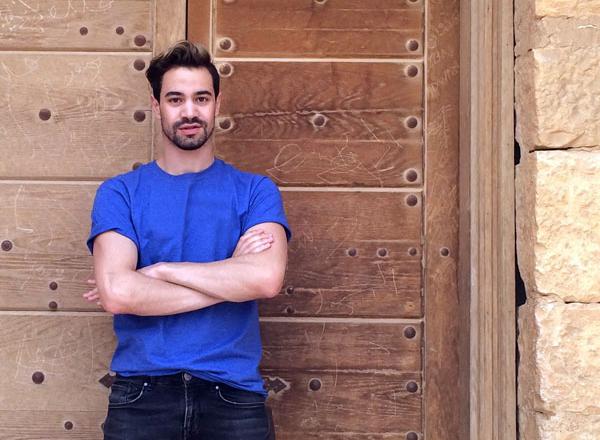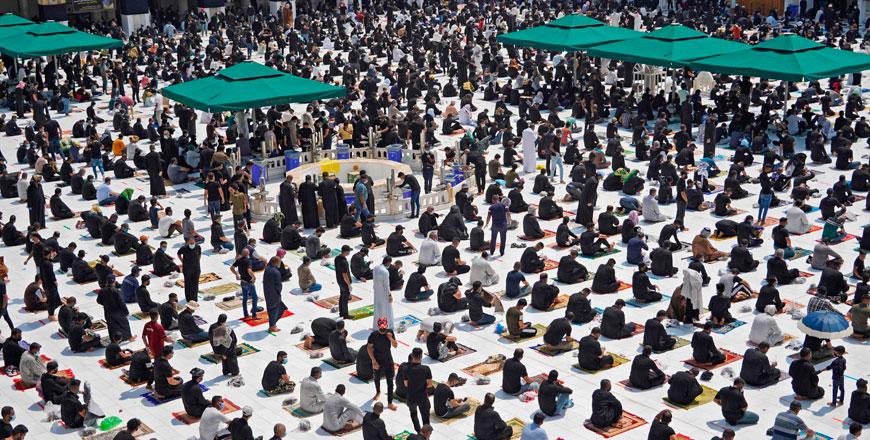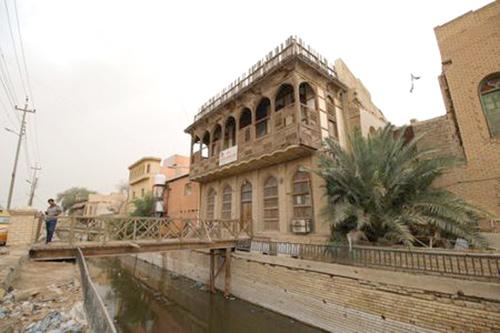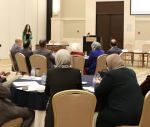You are here
Iraqis turn to sketches and songs to contain virus
By AFP - May 03,2020 - Last updated at May 03,2020
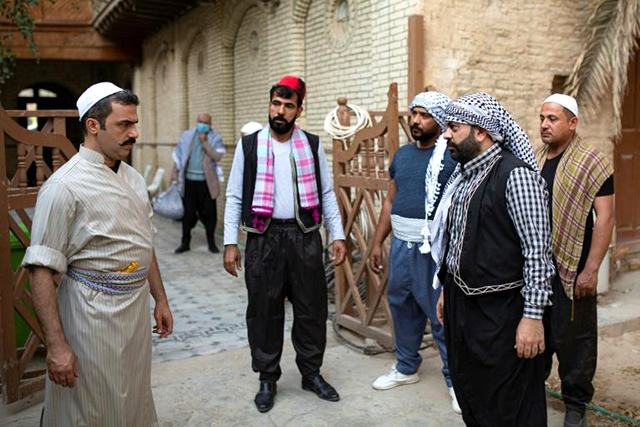
The 'Bab Al Hara' parody skits are meant to raise public awareness of protective measures individuals can take to combat the novel coronavirus pandemic (AFP photo)
BASRA,Iraq — Bushy moustaches, thick Syrian accents, fistfights in 1930s Damascus and... medical masks? A parody of a popular Syrian television show is raising awareness on curbing the coronavirus outbreak in neighbouring Iraq.
Artists in Iraq's southern port city of Basra have adapted the beloved characters of "Bab Al Hara" ("The Neighbourhood Gate") — a 10-season period drama watched across the Arab world — to convince their compatriots to take the pandemic seriously.
In one skit, the show's main character Abu Issam returns to the Syrian capital Damascus unannounced after a long absence, just in time to keep his son from getting into a street fight.
"Put on your mask!" Abu Issam, played by Iraqi artist Mohammad Qassem, scolds his son.
When his wife — also played by Qassem — later draws close to welcome him home, Abu Issam slaps her.
"Don't you know that hugging and kissing are forbidden? We're in the time of corona[virus]! Disinfect the house!"
The scenes are meant to be lighthearted, but the messages behind them are no laughing matter, Qassem told AFP.
"We created these skits to raise the public's awareness of what measures the health ministry has asked them to commit to, how to disinfect and clean your hands, and how to abide by the lockdown," he said.
'The world is crazy'
Iraq imposed a nationwide lockdown in mid-March to combat the spread of the virus, but relaxed measures to an evening and weekend curfew last week.
People quickly flooded the streets as stores opened across the country, with very few practising social distancing or wearing masks and gloves.
The language of comedy may convince people to take preventative action against the virus in ways government orders could not, said Youssef Al Hajjaj, who plays Abu Issam's son in the "Bab Al Hara" parody.
"These sketches use comedy to spread information about staying protected when leaving your homes," Hajjaj said.
Pop hits have also been used to persuade Iraqis to stay home, including a remixed music video of a beloved Egyptian hit featuring a police officer at a checkpoint.
"Corona's got us under curfew here, the world is crazy and full of fear," he croons.
Iraqi singers Wissam Daoud and Thaer Hazem were quick to put out their own tune, a ballad set to the jumpy percussion typical of Iraqi music.
"Be careful and don't go out, it'll get easier day by day. That's how you'll stay well and this crisis will go away," they advise.
Iraq has recorded more than 2,000 novel coronavirus cases, including over 90 deaths, although many suspect the real number of cases is much higher as authorities have yet to introduce widespread testing or contact tracing.
Basra, where health services are notoriously poor, is witnessing an uptick in infections, with nearly 100 new cases in recent days raising the total to 450.
Authorities fear a jump in case numbers could overwhelm Iraq's dilapidated health system — ravaged by decades of conflict and underdeveloped due to little investment and widespread corruption.
'Stay strong'
Qassem and his team have dedicated songs to medical staff and other artists have produced skits to show solidarity with those working long hours at Iraqi hospitals.
One video depicts a young female nurse calling her husband from the hospital, tearfully confessing she was exhausted.
"Stay strong. It's not any tougher than what we've already been through," he tells her over the phone.
Artistic director Abdullah Khaled, 28, considered it an "artistic responsibility" to support medical staff and spread reliable information about the virus.
Another film his team produced features practical tips, including how to disinfect produce and limit outings to one person per household.
Khaled's team says these videos, viewed thousands of times on Instagram, would have more of an impact than the government's conventional communications strategy.
"Awareness through videos is one of the most important tools we have to persuade people to protect themselves," said the videos' 29-year-old director Mustafa Al Karkhy.
"These videos are why people stay safe."
Related Articles
AMMAN (UN Communications Group) — When Alaa Sa'di heard about PLURAL+ Film festival, an initiative of the UN Alliance of Civilisations and t
BAGHDAD — Thousands of supporters of Iraqi cleric Moqtada Sadr gathered at a mosque in east Baghdad on Friday for the first weekly prayers s
BASRA, Iraq — When Iraqi merchant Jabar Mohamed was growing up in the southern port city of Basra, he liked to watch boats gliding along a c


